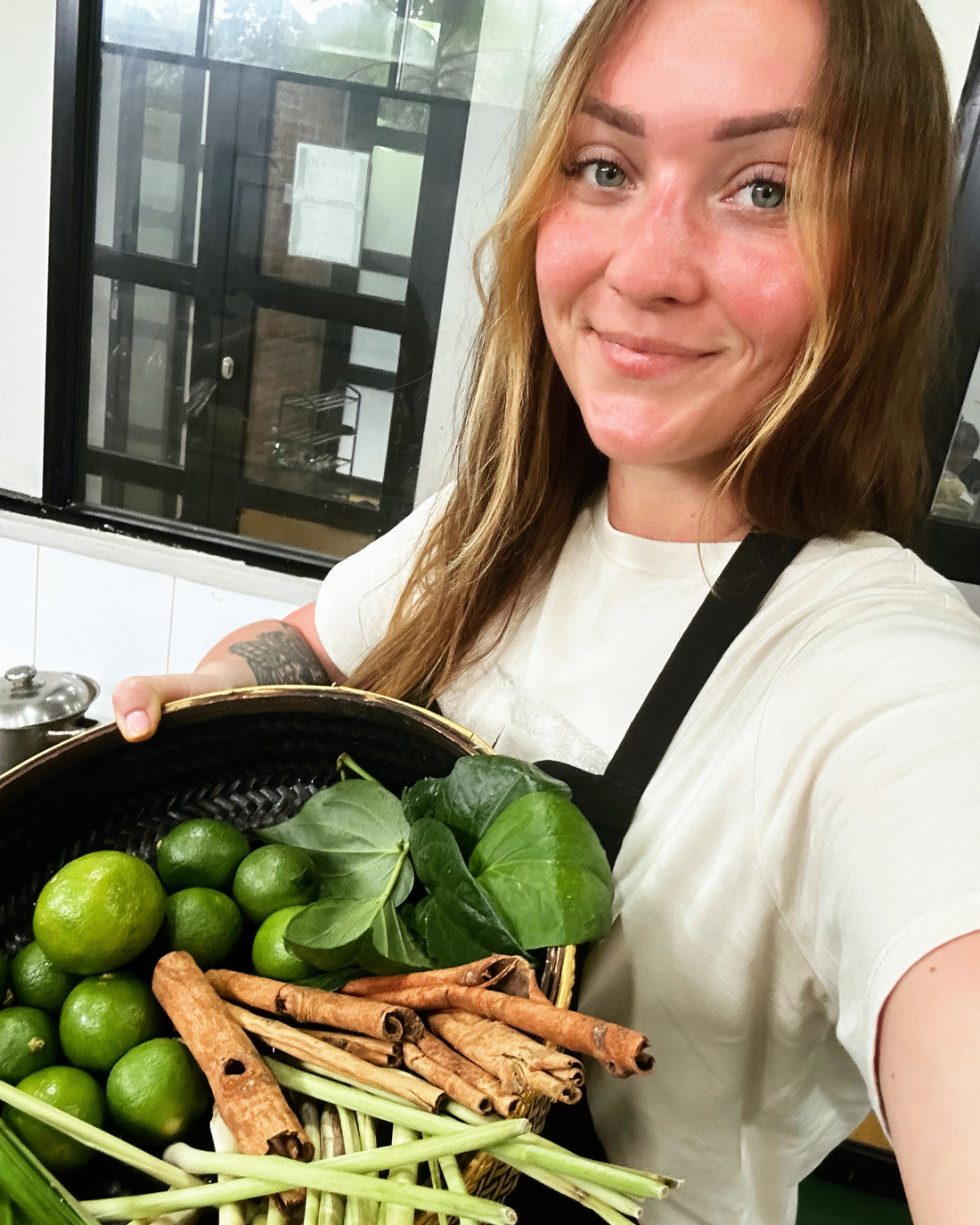
Discovering Jamu: The Ancient Indonesian Herbal Medicine I Learned About in Ubud, Bali
Share
During my recent trip to Ubud, Bali, I had the incredible opportunity to immerse myself in traditional healing practices, gaining invaluable knowledge about holistic medicine. The workshops I attended focused on a deep understanding of natural therapies, herbal remedies, and how the body and mind work together for optimal health. This experience has enhanced my work as a herbalist, phytotherapist, and naturopath, and I’m excited to share what I’ve learned.
What is Jamu?
One of the key takeaways from my time in Bali was learning about Jamu, a traditional form of herbal medicine originating from Indonesia. Jamu has been used for centuries, deeply rooted in the culture and daily life of the people of Bali and throughout Indonesia. It consists of a range of herbal concoctions, typically made from fresh plant ingredients, including roots, herbs, spices, and fruits. The name Jamu is derived from the Javanese language, meaning ‘to heal or treat.’
What makes Jamu so special is its holistic approach. It is not just about treating a symptom but about balancing the body, mind, and spirit to restore harmony and wellness. This aligns closely with my own philosophy of healing, where the focus is on the root causes of ailments, not just the symptoms.
The Roots and Traditions of Jamu
Jamu has been passed down through generations of healers, or dukun, in Indonesia. These herbal remedies were originally created by local healers using plants found in the surrounding forests, gardens, and jungles. Over time, the formulas have been refined and adapted to address a wide range of health issues, from boosting immunity and improving digestion to detoxifying the body and promoting vitality.
The ingredients used in Jamu are predominantly indigenous to the region, with turmeric, ginger, tamarind, lemongrass, and cinnamon being among the most commonly used. These herbs are known for their potent medicinal properties, with turmeric, for example, being highly regarded for its anti-inflammatory and antioxidant benefits, while ginger is renowned for its ability to improve digestion and circulation.
One of the most remarkable aspects of Jamu is its versatility. There are various types of Jamu, each targeting different areas of health. For example, some formulas are specifically designed to boost the immune system, while others are created to promote detoxification or support overall vitality. The ingredients are typically mixed in a liquid form, and the resulting drink is consumed daily for optimal health benefits.
Holistic Approach to Health
Another significant lesson I took away from the workshops was the importance of a holistic approach to health. Traditional healers in Bali believe that the mind, body, and spirit must be in harmony to achieve true wellness. This integrated approach to health involves working with herbs, massage, meditation, and breathing techniques to promote overall vitality.
In the workshops, I had the chance to experience healing rituals that combine plant medicine with mindfulness practices, offering a truly immersive experience. It was eye-opening to see how herbal remedies like Jamu are not only used to address physical ailments but also to promote mental and emotional well-being, reinforcing the idea that health is not just about the body, but the whole person.
How This Knowledge Will Benefit You
What I’ve learned in Ubud has already begun to influence my work, and I’m excited to share these insights with you. In the coming weeks, I’ll be integrating many of these traditional healing practices into my offerings, from herbal remedies to personalised consultations.
In mid-January, new products and services will be available, where you can experience firsthand what I learned at the workshops. These will include specially crafted herbal blends, including my own take on Jamu, workshops, and more – all designed to bring the wisdom of traditional medicine into your everyday life. Stay tuned for exciting updates!
